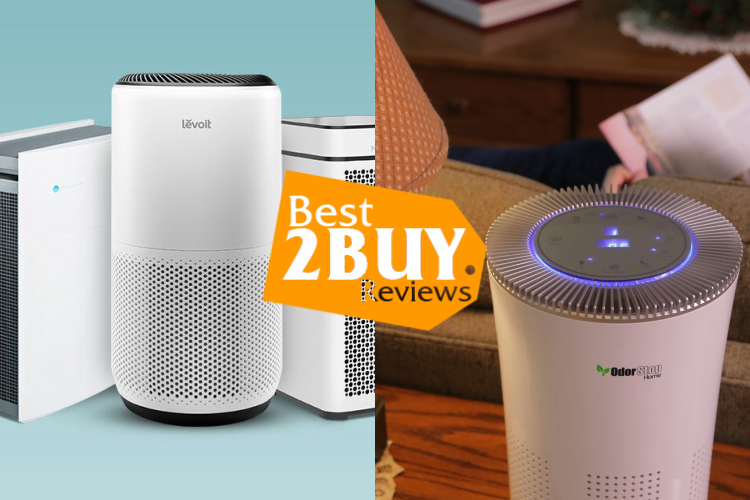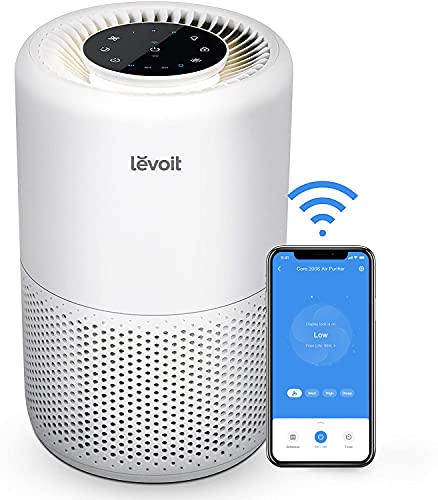HEPA Filter Air Purifiers: Your Ultimate Guide to Cleaner, Healthier Air

- 1. HEPA Filter Air Purifiers: Your Ultimate Guide to Cleaner, Healthier Air
- 2. Considerations for Choosing a HEPA Filter Air Purifier
- 2.1. Understanding Your Requirements
- 2.2. Room Dimensions
- 2.3. CADR (Clean Air Delivery Rate)
- 2.4. Filter Type
- 2.5. Filter Replacement
- 2.6. Noise Levels
- 2.7. Energy Efficiency
- 2.8. Additional Features
- 2.9. Maintenance
- 2.10. Budget
In a time when the quality of the air we breathe is becoming an increasingly pressing issue, HEPA filter air purifiers have risen as a crucial asset for enhancing indoor air quality. HEPA, which stands for High-Efficiency Particulate Air, filters have gained recognition for their remarkable capacity to eliminate minuscule airborne particles. As a result, they have become indispensable devices for residences, workplaces, and medical establishments. In this all-encompassing guide, we will venture into the realm of HEPA filter air purifiers, examining their operational principles, advantages, and key considerations to assist you in selecting the ideal one to meet your specific requirements.
Understanding HEPA Filters
HEPA filters are engineered as mechanical air filters with the capability to capture particles as tiny as 0.3 microns, boasting an impressive efficiency of 99.97%. To provide context, consider that a human hair measures roughly 70 microns in diameter, while typical indoor contaminants such as dust, pollen, pet dander, and even certain bacteria and viruses are considerably smaller. The construction of HEPA filters involves the assembly of a dense matrix of fibers, forming an intricate labyrinth that adeptly entraps particles as they traverse through.
How HEPA Filter Air Purifiers Work
HEPA filter air purifiers operate based on the principle of filtration. They draw in the air present in a room and guide it through a series of filters. The main filter in this process is the HEPA filter, designed to capture minute particles. This HEPA filter is complemented by a pre-filter, which traps larger particles such as dust and hair, and an activated carbon filter responsible for absorbing odors and gases.
After the air has undergone this filtration process, it is released back into the room, significantly purer and devoid of many common allergens and contaminants. Some advanced HEPA filter air purifiers may also incorporate additional features such as UV-C light or ionizers to further sterilize the air, effectively eliminating bacteria and viruses.
Benefits of HEPA Filter Air Purifiers
- Enhanced Air Quality: HEPA filter air purifiers offer a significant advantage in enhancing indoor air quality by effectively eliminating allergens, dust, pollen, pet dander, smoke, and more. This improvement can offer relief to individuals dealing with allergies or respiratory conditions such as asthma.
- Improved Well-being: Cleaner air contributes to better health outcomes. HEPA filter air purifiers can reduce the risk of respiratory illnesses, enhance sleep quality, and enhance the overall quality of life for those who suffer from allergies and asthma.
- Control Over Allergens and Odors: HEPA filters excel not only in capturing particles but also in managing unpleasant odors. The activated carbon filter found in many air purifiers is especially effective at eliminating unwanted odors from cooking, pets, or smoke.
- Reduced Airborne Pathogens: In today's world, the ability to decrease the transmission of airborne viruses and bacteria is of utmost importance. HEPA filter air purifiers can effectively capture and trap numerous pathogens, providing an additional layer of protection.
- Peace of Mind: Knowing that you and your loved ones are inhaling cleaner, healthier air can offer a sense of tranquility, particularly in regions with high pollution levels or during allergy seasons.
Considerations for Choosing a HEPA Filter Air Purifier
Understanding Your Requirements
Prior to purchasing an air purifier, it is crucial to grasp your specific needs. Do you want to alleviate allergies, reduce pet allergens, eliminate cigarette smoke, or enhance overall indoor air quality? Various HEPA filter air purifiers are engineered to address particular pollutants, so identifying your primary concern will help you narrow down your choices.
Room Dimensions
The size of the room where you plan to utilize the air purifier plays a pivotal role in your selection process. HEPA filter air purifiers are rated for specific room dimensions, so it's vital to select one that can efficiently handle the volume of air in your space. Most air purifiers include a recommended room size in their specifications, simplifying the matching of the unit to your requirements.
CADR (Clean Air Delivery Rate)
CADR serves as a metric indicating an air purifier's capability to remove particles such as dust, pollen, and smoke from the air. The higher the CADR rating, the quicker and more effective the air purifier is at purifying the air. When comparing different models, take into account the CADR values for the particular particles that concern you. It is advisable to choose an air purifier with a CADR rating that matches or exceeds your room's dimensions.
Filter Type
HEPA filters are renowned for their exceptional particle-capturing abilities, but there are different filter types that demand your attention:
- True HEPA Filters: These filters conform to rigorous HEPA standards and can trap particles as tiny as 0.3 microns, encompassing pollen, dust mites, and pet allergens.
- HEPA-Type or HEPA-Like Filters: These filters may not meet the true HEPA standard but can still be effective at removing larger particles. However, they may not capture ultra-fine particles like genuine HEPA filters.
Filter Replacement
Regular filter replacement is indispensable for sustaining the efficiency of your air purifier. Check the cost and availability of replacement filters for the model under consideration. Certain air purifiers come with washable or reusable filters, which can prove more economical in the long run.
Noise Levels
Contemplate the noise level of the air purifier, particularly if you intend to use it in a bedroom or tranquil living area. Seek out models with adjustable fan speeds, granting you the ability to reduce noise levels as necessary.
Energy Efficiency
Look for the ENERGY STAR certification or assess the energy consumption of the air purifier. An energy-efficient model can result in savings on electricity bills over time.
Additional Features
Certain air purifiers offer additional features such as air quality sensors, timers, remote controls, or smart capabilities that enable you to monitor and control the unit through a mobile app. These features can enhance the convenience of your air purifier usage.
Maintenance
Reflect upon the ease of maintenance. Are the filters easily accessible and replaceable? Is the unit straightforward to clean? An air purifier that is easy to maintain ensures its durability and efficacy.
Budget
Last but not least, take your budget into consideration. Air purifiers are available in a wide range of price points. While it's important to find one that meets your needs, there are options available to accommodate various budgets.
HEPA filter air purifiers play an essential role in preserving the cleanliness and health of indoor air. Due to their capacity to eliminate particles as tiny as 0.3 microns, they prove exceptionally efficient at diminishing allergens, contaminants, and even airborne pathogens. When in the process of picking a HEPA filter air purifier, it is important to take into account various factors such as room size, filter replacement, noise levels, features, and energy efficiency. These considerations ensure that you make the right choice tailored to your specific needs. By investing in a HEPA filter air purifier, you can experience improved breathing, better sleep quality, and a healthier indoor environment, benefiting both yourself and your family.











